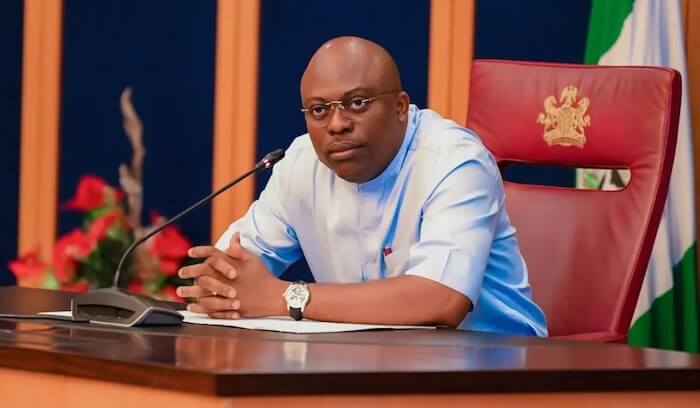ARTICLE AD

Deputy Speaker, House of Representatives, Benjamin Kalu
Nigeria has proposed several initiatives aimed at achieving Agenda 2063 of the African Union.
Some of the proposed measures include the establishment of centres of excellence at the sub-regional levels to build capacity in technology and the need for innovative financial models.
Also proposed is the creation of appropriate incentives for public and private partnership arrangements for the development of infrastructure on the continent.
Nigeria’s positions were advanced by the Deputy Speaker of the House of Representatives and leader of the Nigerian delegation, Benjamin Kalu, on Thursday, at the ongoing 12th Annual Conference of Speakers of National and Regional Parliaments at the Pan-African Parliament in Midrand, South Africa.
Agenda 2063 is a 50-year African blueprint and master plan for transforming the continent into the global powerhouse of the future.
Signed in 2013, the agenda is the continent’s strategic framework that aims to deliver on its goal of inclusive and sustainable development.
It entails not only Africa’s aspirations for the future but also identifies key flagship programmes that can boost Africa’s economic growth and development and lead to the rapid transformation of the continent.
Speaking at the session, Kalu, who reacted to a paper presented on the subject matter, urged the Parliament to strive to make Agenda 2063 a household name in Africa.
A statement made available to journalists by the Chief Press Secretary to the Deputy Speaker, Levinus Nwabughiogu, quoted Kalu as urging African countries to embrace Agenda 2063.
“I want to commend you for that excellent presentation. The idea is wonderful; we are pursuing it, but we are struggling.
We are struggling because of the gaps you have mentioned.
“You also agreed that financing is an issue regarding this agenda. So, the question becomes, how do we make it a household project? A household agenda without funds? It will be difficult, and you’ve highlighted that we cannot depend on external bodies to be able to push this project; we need to own it and finance it.
“Would it be a good idea for Africa to consider public-private partnerships in raising funds for fulfilling the objectives of this agenda?
“As legislators in our various parliaments, we should legislate that those who participate, especially in infrastructure development that aligns with Agenda 2063, be incentivised, perhaps through tax breaks for some of them,” Kalu said.
That said, Kalu, the statement added, expressed concern over possible overlaps between the attributes of Agenda 2063 and the Sustainable Development Goals.
“It appears to me that there’s a strong overlap between Agenda 2063 and the SDGs. I heard you mention health facilities and the rest, which is also one of the agendas of the SDGs. Are they not overlapping significantly? If they are, and the SDGs are taking care of some of these responsibilities, wouldn’t it be better to prioritise those that are outside the list of SDGs to drive efficiency in a better manner?
“Regarding implementation and oversight, it is being executed in various countries, especially in Nigeria, where SDG implementation is managed by the ministries in charge and is also overseen by Parliament.
“For us to drive 2063, there is every reason for people to have the right capacity to do so. We cannot go to Europe and borrow from those who will help us implement our agenda. To achieve that, what are we doing about the knowledge and capacity that are lacking?” he asked.
He continued, “Would it be a wrong proposal for us to establish centres known as centres of excellence across the various regions in Africa, where we can build capacities in technology and knowledge so that we’ll be able to own this project?” he proposed.

 2 months ago
18
2 months ago
18 

